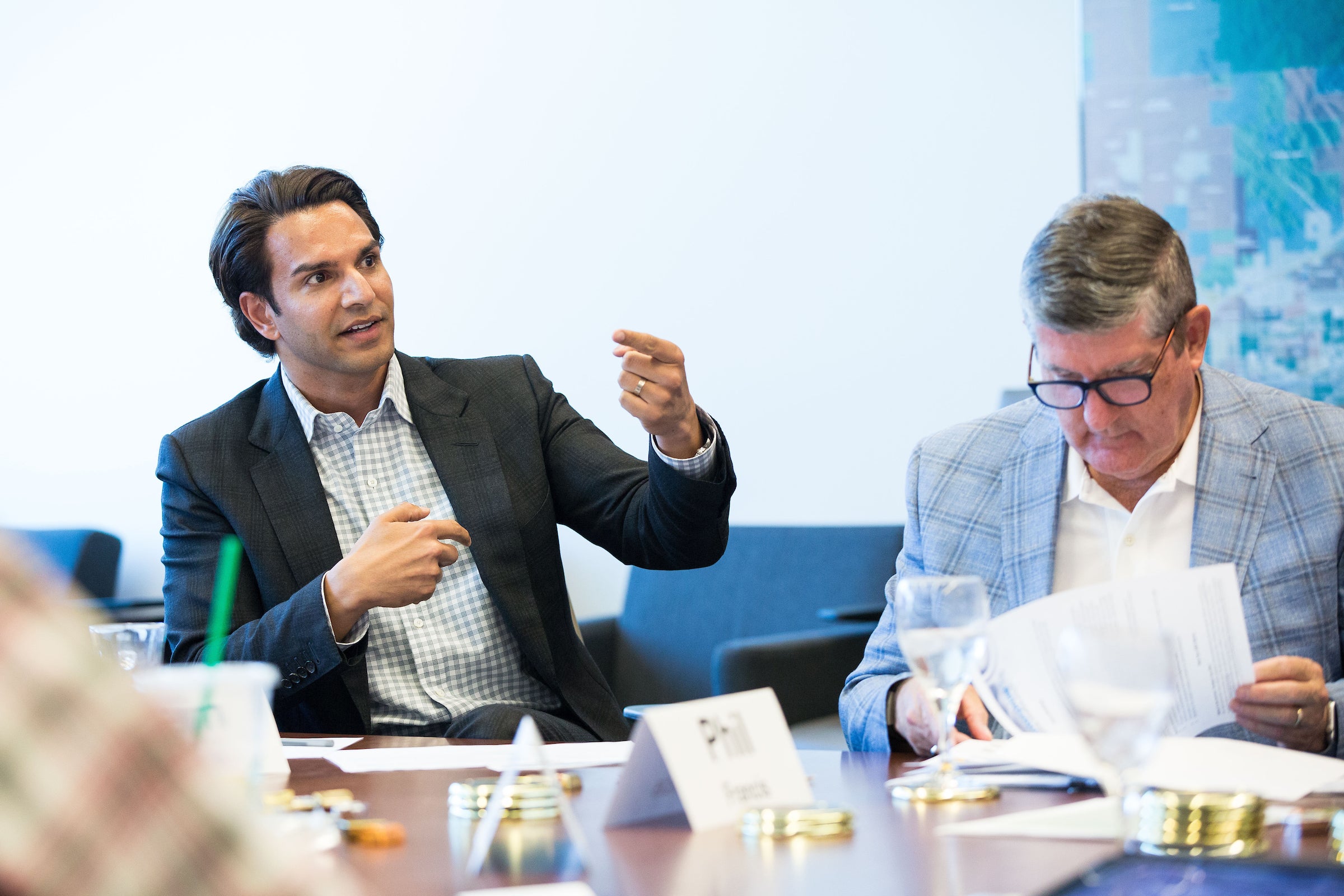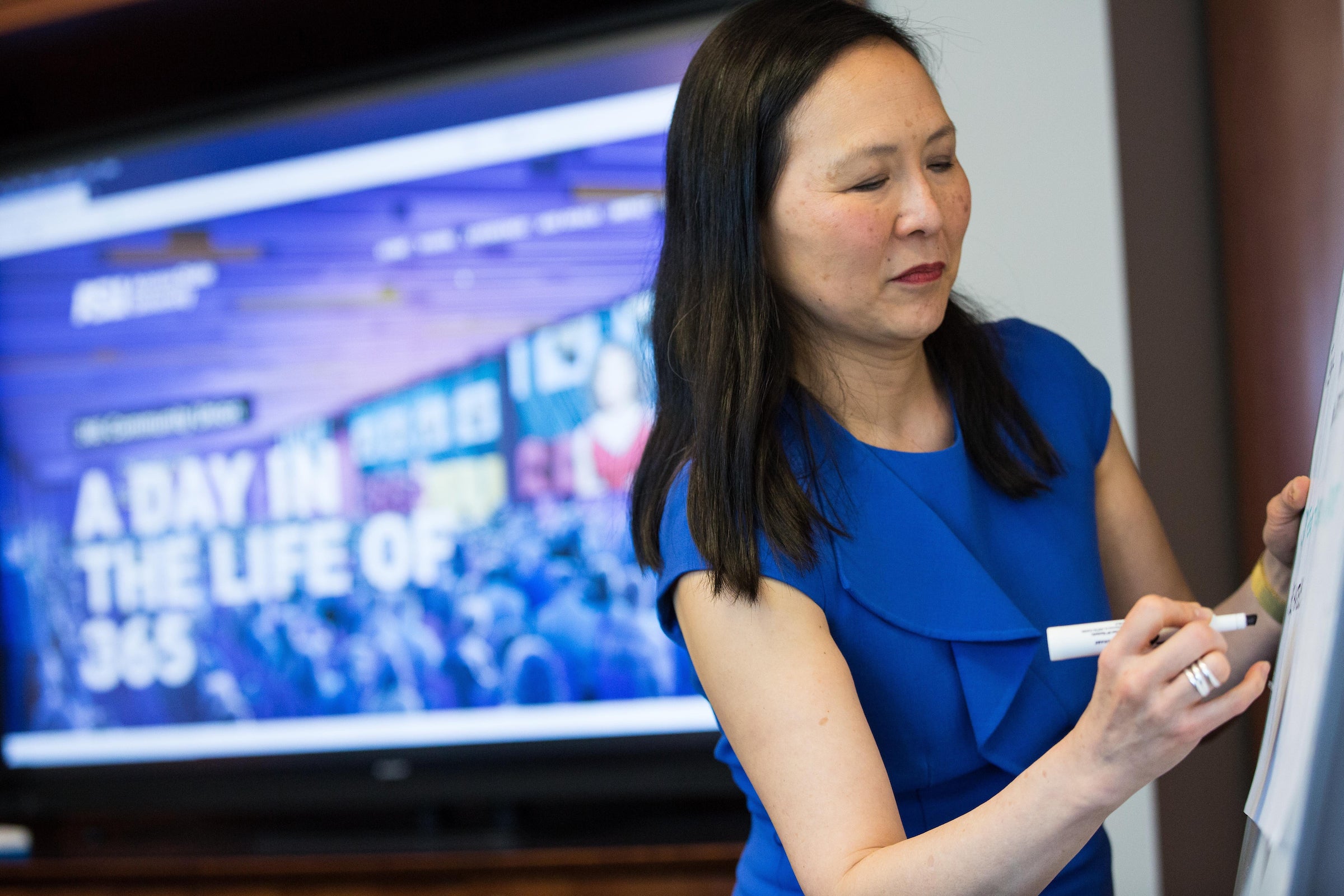The Idea Enterprise helps ASU faculty move big ideas into action

Arizona State University’s reputation for innovation is not based on the ideas of just a few people, but on the collective creativity of everyone.
But turning an interesting concept into action takes hard work. The Idea Enterprise is one way that ASU nurtures promising projects proposed by faculty and staff.
The initiative, which is marking five years, is a process that uses the expertise of successful leaders from outside ASU to help refine and expand a good idea and to provide feedback.
The Idea Enterprise has helped in the advancement of dozens of ideas over the past five years that are in various stages of achievement, including:
- CLAS “Early Start” — This free two-week immersion program, funded by donations and launched in 2014, is held in the summer to help freshmen identified as having risk factors that could impede their success in college.
- Digital English — English is frequently a barrier that prevents people from engaging in meaningful global dialogue, especially in business and STEM fields. The Digital English courses, offered by Global Launch, seek to address this challenge by making learning English accessible across the globe.
- Lightworks — This incubator advances promising energy technology research by finding seed funding and other business resources.
Earlier this week, the Idea Enterprise saw ASU 365 Community Union, a plan to renovate Sun Devil Stadium into a year-round, around-the-clock gathering space for everyone at ASU. The concept is to incorporate classroom space, academic units, recreational and fitness activities, performances, lectures, restaurants and retail into the stadium so it’s used more than a few times a year for football games. The complex will include the newly renovated Wells Fargo Arena, the new hockey rink and the Novus residential and commercial development that’s under construction.
Kaleim Manji (left), CEO of Spear Education, and Phil Francis, former CEO of PetSmart, were among the executive leaders of the Idea Enterprise who evaluated ASU 365 Community Union, a proposal to renovate Sun Devil Stadium into a year-round attraction. Photo by Deanna Dent/ASU Now
Colleen Jennings-Roggensack, vice president for cultural affairs at ASU and general manager of the stadium project, said the goal is to use the space 98 percent of the time.
“The stadium has not been a welcoming place for a wide demographic,” she said. “It’s not been a place of inclusion.”
The Idea Enterprise feedback sessions are meant to be direct and informative. Sometimes the business leaders offer tough love.
Courtney Klein, co-founder and CEO of SEED SPOT, a nonprofit incubator based in Phoenix, pressed the team to collect more data and incorporate it into a more detailed plan for investors.
But the executives also were excited about ASU 365 Community Union.
Jennings-Roggensack said the feedback was useful.
“I’m struck by the ‘percentage’ comments — don’t use that number. That was one of the most important things I heard,” she said.
‘I’m hearing things we can do — tough things we can do and easy things we can do. And that’s what we wanted from this meeting.”
May Busch has been chair of the Idea Enterprise for the five years it has been in existence and said the process has been streamlined over that time.
“We’ve diversified the group leaders and improved the way we source ideas,” she said.
After the session, the participants get a summary of the feedback and comments.
May Busch writes down comments on a white board during the Idea Enterprise evaluation of the ASU 365 Community Union proposal. Busch has been chair of the Idea Enterprise for the five years it has been in existence. Photo by Deanna Dent/ASU Now
“This is all about helping them,” she said. “There’s no competition. No judging. It’s all about helping,” said Busch, senior adviser and executive in residence in the Office of the President and professor of practice in the W. P. Carey School of Business.
Laura Hosman, an assistant professor in the School for the Future of Innovation in Society and the Ira A. Fulton Schools of Engineering, presented her project a year ago and said the business leaders forced her to think in different ways.
Hosman created SolarSPELL, a portable, solar-powered digital library that can function without electricity or existing internet connectivity. SolarSPELL is full of resources like science and math lessons that can be accessed via laptop, smartphone or iPad. It’s all contained in a weatherproof case with compact solar panel. Hosman has taken teams of students to several Pacific islands and to Africa to work with Peace Corps volunteers, who then train local teachers to use SolarSPELL.
“Idea Enterprise approached me, and I realized it was a fantastic fit because I do have a big idea,” she said. So she brought SolarSPELL to the group.
“They knew I wasn’t quite ready for prime time,” Hosman said.
“The executives challenged me to come up with something that could be spun off.”
Video by the Idea Enterprise
She struggled with that. “I want to get this digital library to as many people around the globe as possible, and I wanted it at ASU because it’s a public good that needs to benefit from all the different disciplines, faculty, students and libraries, which you wouldn’t find if we spun it out into a for-profit,” she said.
But over the summer, she came up with the idea of spinning off the hardware component, which could be sold.
“In social sciences, we aren’t usually the people thought of as those who come up with technology that gets patented and spun off,” she said.
The leaders helped her to get legal advice and help with a business plan, and now she’s working on a prototype.
“Being challenged in a different way got me off my normal path and thinking more creatively, and it was absolutely for the best,” she said.
“They provide resources to help you realize your big idea.”
Learn more about the Idea Enterprise, including how to submit an idea. Top photo: Colleen Jennings-Roggensack, vice president for cultural affairs at ASU and general manager of the stadium project, pitches ASU 365 Community Union to the executive leadership team of the Idea Enterprise on Monday in Fulton Center. Photo by Deanna Dent/ASU Now

